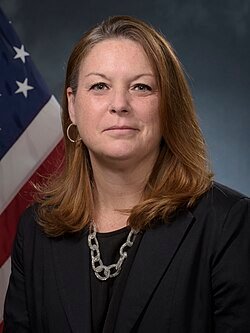Kimberly Cheatle served as the Director of the United States Secret Service during a critical and controversial period in the agency’s history. Appointed by President Joe Biden, she took office on September 17, 2022, becoming only the second woman to ever lead the organization. Her tenure, initially marked by efforts to modernize the agency and improve security protocols, was later overshadowed by a serious breach that shook the nation—the attempted assassination of former President Donald Trump in July 2024.
Cheatle began her career with the Secret Service in 1995 and rose steadily through the ranks. She served in a variety of roles, including as the Special Agent in Charge of the Atlanta Field Office and as Deputy Assistant Director in the Office of Protective Operations. These positions gave her significant experience in both field operations and presidential protection, making her a logical candidate for the agency’s top position. Her time outside government included a role at PepsiCo, where she led global security operations, further demonstrating her ability to manage large-scale safety protocols in both public and private sectors.
Her professional excellence was recognized in 2021 when she received the Presidential Rank Award, one of the highest honors for federal service employees. That award highlighted her effectiveness and leadership within the agency prior to becoming its director. Once appointed, she focused on updating operational systems, enhancing cybersecurity, and strengthening coordination between local and federal law enforcement agencies. She aimed to ensure the Secret Service could meet the demands of modern threats, especially in the digital age.
However, her legacy took a dramatic turn following the attempted assassination of Donald Trump on July 13, 2024. The attack occurred during a campaign rally in Butler, Pennsylvania. A shooter, identified as Thomas Crooks, opened fire from a rooftop. One bullet grazed Trump’s ear, and the attack resulted in one death and two injuries in the crowd. A Secret Service sniper neutralized the gunman, but the breach in security led to immediate and widespread condemnation.
In the aftermath, a bipartisan House task force launched an investigation. Their 180-page report, released in December 2024, revealed deep flaws in the agency’s planning, leadership, and operational readiness under Cheatle’s direction. The report concluded that the agency failed to coordinate effectively with local law enforcement and had assigned critical roles to underprepared agents. The problems, according to the findings, were systemic and not confined to the day of the incident.
Public reaction to the incident and the report was intense. Families of victims testified during emotional congressional hearings. Lawmakers from both parties demanded accountability and reform. Cheatle, facing immense pressure, submitted her resignation in the final weeks of 2024. Her departure was seen by many as a necessary step in restoring public confidence in the agency, which had long held a reputation for excellence in protecting national leaders.
Although her resignation marked the end of her leadership at the Secret Service, the impact of the Butler incident continues to shape conversations about national security and law enforcement readiness. New leadership within the agency has since introduced reforms, including the use of military-grade surveillance drones, updated mobile command units, and advanced training programs. These measures aim to address the very gaps in planning and communication that became evident during Cheatle’s tenure.
Kimberly Cheatle remains a figure of both high achievement and controversy. Her decades of service, numerous awards, and leadership roles reflect a distinguished career in law enforcement. Yet her time as director is now closely associated with one of the most significant security failures in recent U.S. history. As election cycles bring renewed attention to political safety, Cheatle’s story serves as a reminder of the stakes involved in protecting public figures in a polarized and unpredictable environment.







